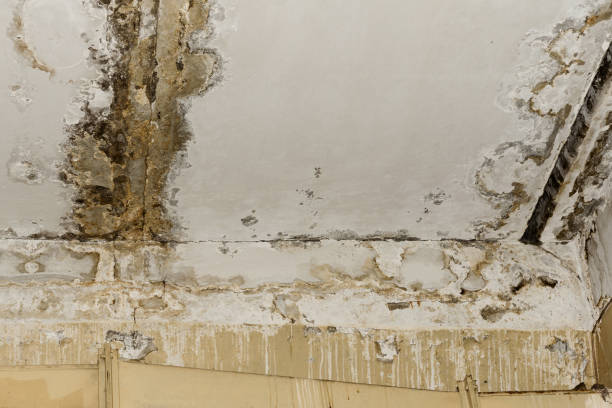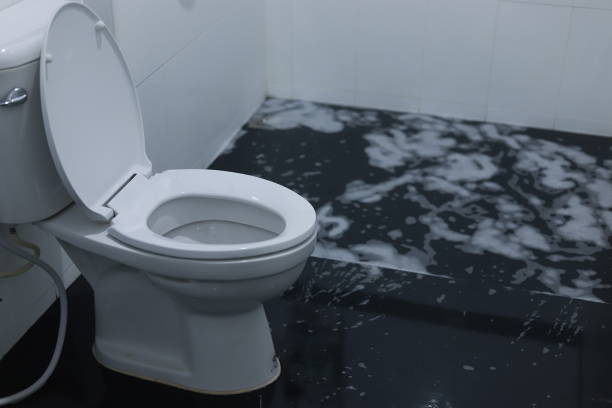We've stumbled upon this post about How to Repair and Prevent Bathroom Water Damage? directly below on the net and decided it made good sense to write about it with you here.

Water damage frequently takes place in the bathroom due to the water made use of daily. Often, the damages could be a little mold from the shower. Various other times, it's substantial damage on your flooring. Whatever it is, it is constantly good to understand the reason and avoid it prior to it takes place.
This guide will experience several of the common root causes of water damage in the washroom. We will likewise analyze what you can do to stop these causes from damaging your shower room. Allow's dive in.
These are the usual reasons you would have water damage in your shower rooms and also how you can find them:
Excess Wetness
It's great to have that lengthy shower and splash water while you dance around as well as imitate you're executing, but often these acts could cause water damage to your restroom.
Sprinkling water around can trigger water to head to edges and also form molds. Watch exactly how you spread excess wetness around, as well as when you do it, clean it up to stop damages.
Splits in your wall surface floor tiles
Bathroom wall tiles have been specially developed for that function. They shield the wall surface from dampness from individuals taking showers. However, they are not indestructible.
Sometimes, your bathroom wall surface tiles split and also permit some dampness to permeate right into the wall surface. This can possibly ruin the wall if you do not take any kind of activity. If you see a split on your wall surface ceramic tiles, repair it right away. Don't wait up until it destroys your wall.
Overflowing commodes and also sinks
As human beings, often we make errors that might cause some water damage in the bathroom. For example, leaving your sink faucet on can cause overruning and also damages to various other parts of the shower room with wetness.
Likewise, a defective toilet could cause overruning. As an example, a busted bathroom deal with or other parts of the cistern. When this happens, it can harm the flooring.
As soon as you notice an overflowing sink or commode, call a plumbing professional to assist take care of it right away.
Burst or Dripping Pipelines
There are lots of pipes carrying water to various parts of your shower room. Some pipes take water to the toilet, the sink, the faucets, the shower, and also lots of other places. They crisscross the tiny area of the restroom.
From time to time, these pipelines might get corroded and also burst. Other times, human activity might cause them to leakage. When this occurs, you'll find water in the edges of your restroom or on the wall.
To detect this, watch out for bubbling wall surfaces, molds, or mildew. Call a specialist emergency plumber to repair this when it occurs.
Roof Leakages
Sometimes, the trouble of water damage to the restroom might not originate from the restroom. As an example, a roofing system leak might cause damages to the restroom ceiling. You can detect the damage done by considering the water spots on the ceiling.
If you find water spots on your ceiling, examine the roofing system to see if it's harmed. Then, call an expert to aid resolve the concern.
Conclusion
Water damage to your shower room can be annoying. Nevertheless, you can manage it if you prevent a few of the reasons discussed in this overview. Call a specialist emergency plumbing technician if you notice any type of extreme damages.
How to Repair a Water-Damaged Wall in the Bathroom
All you need to know to repair bathroom wall water damage – from identifying the water source to finishing the repair professionally. If you don’t act quickly to resolve a water damage problem, you could find that it develops into a mold issue and/or cause structural damage to your home. Follow this guide to repair your bathroom before it's too late.
All you need to know to repair bathroom wall water damage
Water damage is a common household problem, and one that, if left unrepaired, can quickly lead to structural problems and health issues. The two most likely rooms where water damage may occur is the bathroom and the kitchen – where water is used often and there is high humidity.
What is water damage?
It is easy to think of water damage as caused by a flood or leaking tap or burst water pipe. However, when water damage is assessed, there are three main categories into which water falls (as classified by the American National Standards Institute). These categories are defined as:
Category 1 Water – ‘Clear Water’
This is sanitary water. There is usually no major threat to health by washing with this water, drinking it, or inhaling if it is streaming. Most water that enters your home will be category 1 water, while most water leaving your home will be either category 2 or 3 water. It may also come from melting snow, rainwater and water tanks.
Damage caused by this type of water can usually be repaired or restored, though this doesn’t mean that there are no potential health issues.
Category 2 Water – ‘Grey Water’
This is contaminated water – sometimes considerably so – and will cause illness if consumed or if it comes into contact with your skin. Water damage in this category is often caused by overflows from toilet bowls, and damage to washing machines and dishwashers. While damaged items might still be repaired or restored after damage by grey water, it is more difficult and more expensive to do so.
If the water damage in your home has been caused by grey water, it is advisable to have repairs made by professionals.
Over time, grey water will deteriorate and become black water.
Category 3 Water – ‘Black Water’
Category 3 water, also known as black water, is highly contaminated and a great risk to health. This may contain raw sewage, heavy metals, and other toxic substances. It will smell terrible.
If this is the water that has caused damage in your bathroom, do not touch it. Stop the water flowing if possible, seal the room and call the experts: it really isn’t worth the risk of ill health and disease that could be fatal. It is very unlikely that items can be repaired or restored if they have been damaged by black water.
https://www.porterscleaning.com/blog/how-to-repair-a-water-damaged-wall-in-the-bathroom/

As an avid person who reads about How to Repair and Prevent Bathroom Water Damage?, I was thinking sharing that segment was important. Do you know anybody else who is excited about How to Repair and Prevent Bathroom Water Damage?? Why not share it. Thank you for going through it.
Request An Appointment
Comments on “How to Detect a Leaking Bathroom”